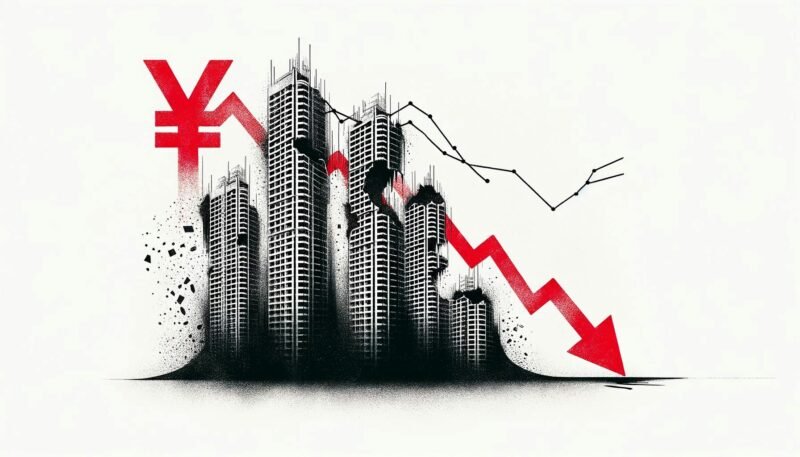What’s going on here?
Chinese shares fell on Monday due to disappointing data on domestic home prices and Vanke’s significant net loss.
What does this mean?
Chinese markets have hit a rough patch, as recent data and corporate losses stoke fears of deeper economic issues. The Shanghai Composite index dropped 0.6% to 2,824.50, while the blue-chip CSI300 index fell 1.2%. Homegrown giants like China Vanke, who reported a hefty core loss of 7.6 billion yuan ($1.07 billion) for the first half, saw their shares sink nearly 4%. This cascade affected the broader consumer staples sector, which fell 2.5%, with the food and beverage index down 2.7%. Meanwhile, Hong Kong-listed developers experienced even steeper declines, losing nearly 5% as Mainland Chinese property shares slumped 3.3%. Notable drops included China Resources Land, down 5.6%, China Overseas Land & Investment, down 5.5%, and New World Development suffering a massive 13.4% decline, the largest on the Hang Seng.
Why should I care?
For markets: Real estate woes ripple through markets.
China’s weak home price data and Vanke’s losses have caused shockwaves across multiple sectors. The Hang Seng Index dropped 1.7% to 17,670.72, while Chinese H-shares listed in Hong Kong fell 1.8% to 6,212.19. With the mainland property sector down 3.3% and significant losses among major developers, market confidence is shaky. As the yuan weakened by 0.17% against the US dollar, investor sentiment is increasingly bearish.
The bigger picture: Economic data paints a grim outlook.
China’s economic struggles are becoming more apparent, as a private survey revealed that new home prices barely rose in August. Despite some growth in manufacturing PMI via Caixin/S&P Global, broader economic activity continues to decline. The MSCI’s Asia ex-Japan stock index fell 0.42%, and Japan’s Nikkei index remained flat. These indicators hint at prolonged economic challenges for China, with significant implications for global markets and future policy directions.












